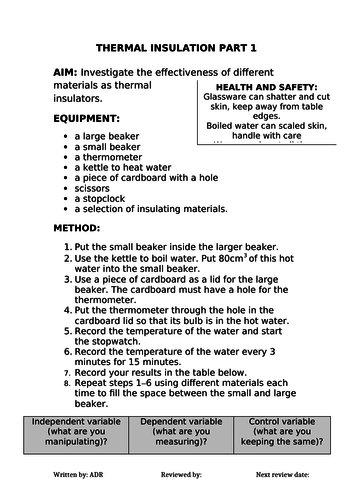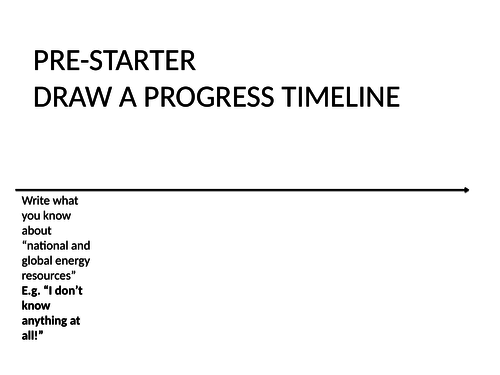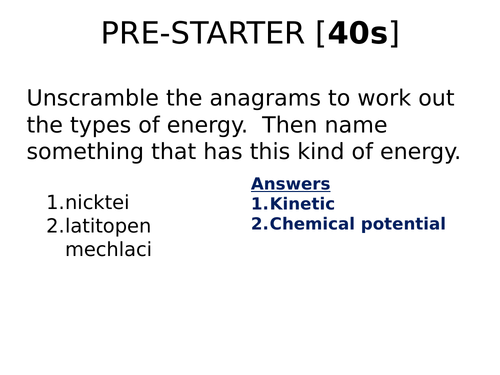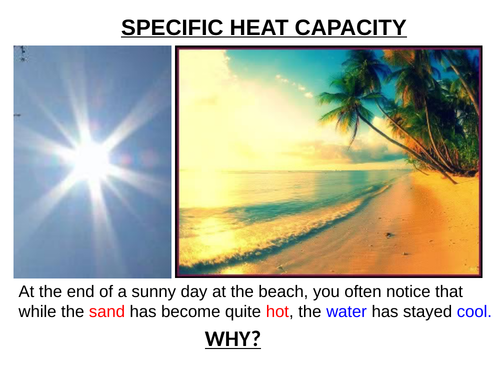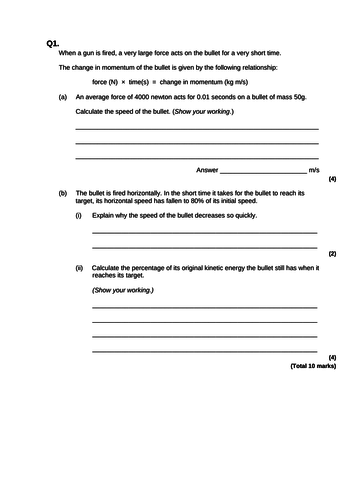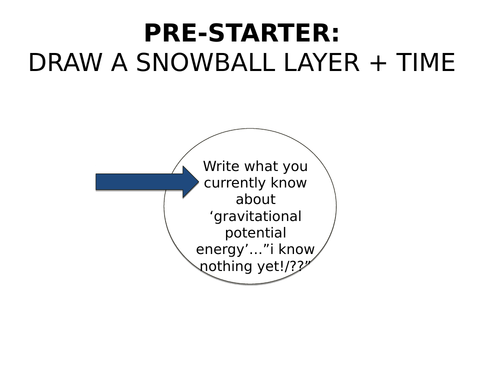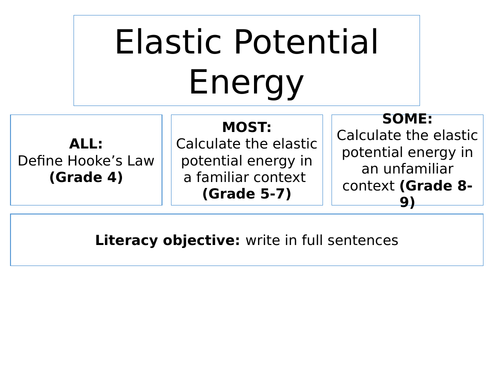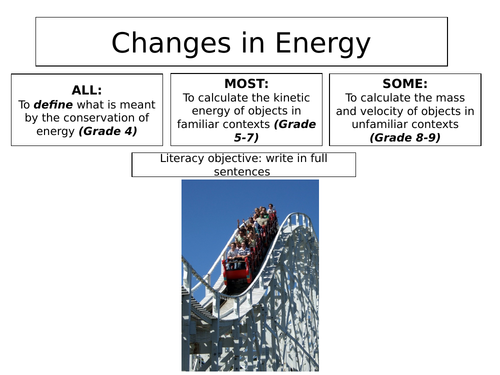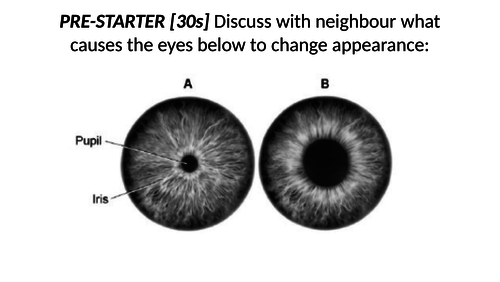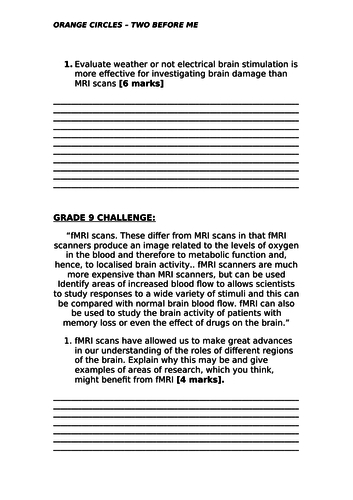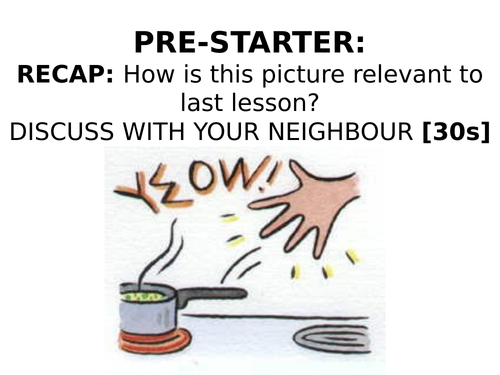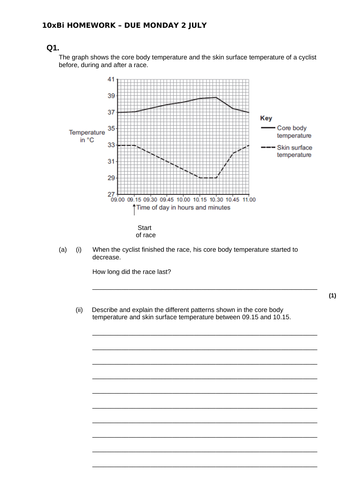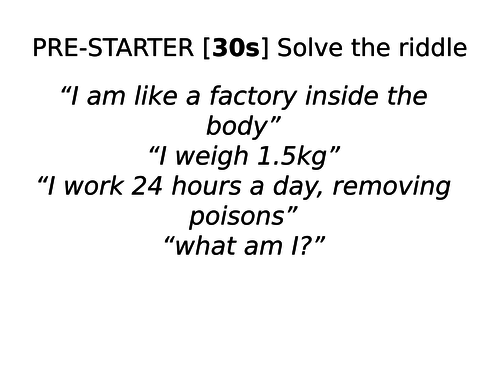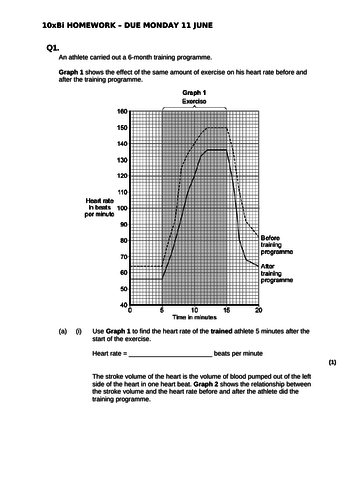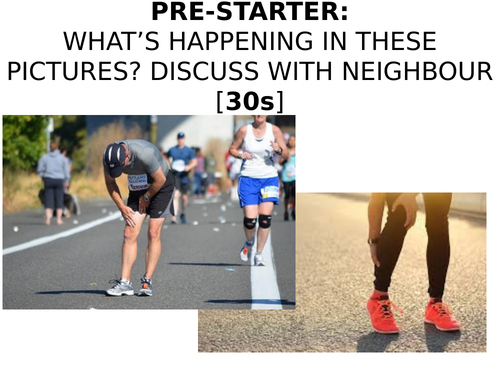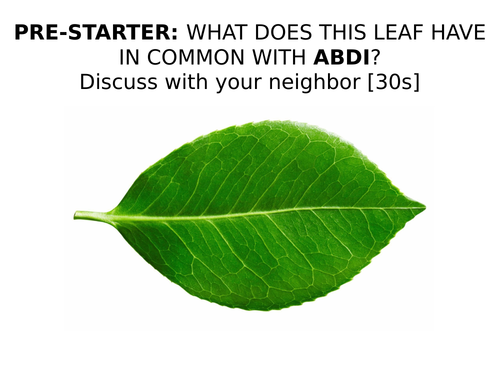172Uploads
29k+Views
2k+Downloads
All resources

AQA GCSE Physics P1 Energy Module - Lesson 1
This lesson is for teaching the above named lesson as part of the Energy Module of Physics Unit 1 (P1) of the new 2018 AQA GCSE specification for GCSE Physics.
The lesson has the following features embedded:
Lesson has Bloom’s Taxonomy embedded throughout which are also graded for differentiation.
Stretch and challenge
AfL (progress checks embedded)
Narrative of lesson structure is clear and focused as well as engaging.
Pre-starter prepared.
The lesson is geared with top-down approach pedagogy and provide inclusive differentiation for low attaining and medium attaining pupils as well.
The lesson should be ‘tweaked’ to meet the needs of your own pupils.

2018 AQA GCSE Biology Unit 2 (B2): Kidneys and Kidney Dialysis
This lesson is for teaching the above named lesson as part of the Homeostasis and Response Module of Biology Unit 2 (B2) of the new 2018 AQA GCSE specification for GCSE Biology. This pack contains two lessons to deliver content on Kidney function and Kidney disease treatment methods.
The lesson has the following features embedded:
Lesson has Bloom’s Taxonomy embedded throughout which are also graded for differentiation.
Stretch and challenge tasks throughout (including Grade 8-9+ questions and extended writing)
AfL (3 progress checks embedded)
Differentiation is strong as has been noted in formal school observations for the last 2 years of teaching AQA.
Narrative of lesson structure is clear and focused as well as engaging.
Pre-starter prepared.
The lesson is geared with top-down approach pedagogy and provide inclusive differentiation for low attaining and medium attaining pupils as well.
The lesson should be ‘tweaked’ to meet the needs of your own pupils.
NOTE: You can purchase the entire lesson pack for GCSE Biology Unit 2 and Unit 1 (or both units as a whole pack) which contains all Trilogy and Triple Science lessons at a 20% discount. Please look through the resources to find this special ongoing offer.

2018 AQA GCSE Biology Unit 2 (B2): Asexual and Sexual Reproduction
This lesson is for teaching the above named lesson as part of the Inheritance, Variation and Evolution Module of Biology Unit 2 (B2) of the new 2018 AQA GCSE specification for GCSE Biology.
The lesson has the following features embedded:
Lesson has Bloom’s Taxonomy embedded throughout which are also graded for differentiation.
Stretch and challenge tasks throughout (including Grade 8-9+ questions and extended writing)
AfL (3 progress checks embedded)
Differentiation is strong as has been noted in formal school observations for the last 2 years of teaching AQA.
Narrative of lesson structure is clear and focused as well as engaging.
Pre-starter prepared.
The lesson is geared with top-down approach pedagogy and provide inclusive differentiation for low attaining and medium attaining pupils as well.
The lesson should be ‘tweaked’ to meet the needs of your own pupils.
NOTE: You can purchase the entire lesson pack for GCSE Biology Unit 2 and Unit 1 (or both units as a whole pack) which contains all Trilogy and Triple Science lessons at a 20% discount. Please look through the resources to find this special ongoing offer.

2018 AQA GCSE Physics Unit 1 (P1): Thermal Insulation Required Practicals (Part 1 and 2). L8
This unique and high-quality pack contains all resources needed to deliver the Thermal Insulations Required Practicals (Parts 1 and 2) for the new 2018 AQA GCSE Physics and AQA GCSE Combined Science: Trilogy specifications.

2018 AQA GCSE Physics Unit 1 (P1): National and Global Resources L10
This lesson is for teaching the above named lesson as part of the Energy module of Physics Unit 1 (P1) of the new 2018 AQA GCSE specifications for Combined Science: Trilogy and GCSE Physics.
The lesson has the following features embedded:
Lesson has Bloom’s Taxonomy embedded throughout which are also graded for differentiation.
Stretch and challenge tasks throughout (including Grade 8-9+ questions and extended writing)
AfL (3 progress checks embedded)
Differentiation is strong as has been noted in formal school observations for the last 2 years of teaching AQA.
Narrative of lesson structure is clear and focused as well as engaging.
Pre-starter prepared.
The lesson is geared with top-down approach pedagogy and provide inclusive differentiation for low attaining and medium attaining pupils as well.
The lesson should be ‘tweaked’ to meet the needs of your own pupils.

2018 AQA GCSE Physics Unit 1 (P1): Efficiency L9
This lesson is for teaching the above named lesson as part of the Energy module of Physics Unit 1 (P1) of the new 2018 AQA GCSE specifications for Combined Science: Trilogy and GCSE Physics.
The lesson has the following features embedded:
Lesson has Bloom’s Taxonomy embedded throughout which are also graded for differentiation.
Stretch and challenge tasks throughout (including Grade 8-9+ questions and extended writing)
AfL (3 progress checks embedded)
Differentiation is strong as has been noted in formal school observations for the last 2 years of teaching AQA.
Narrative of lesson structure is clear and focused as well as engaging.
Pre-starter prepared.
The lesson is geared with top-down approach pedagogy and provide inclusive differentiation for low attaining and medium attaining pupils as well.
The lesson should be ‘tweaked’ to meet the needs of your own pupils.

2018 AQA GCSE Physics Unit 1 (P1): Specific Heat Capacity L5
This lesson is for teaching the above named lesson as part of the Energy module of Physics Unit 1 (P1) of the new 2018 AQA GCSE specifications for Combined Science: Trilogy and GCSE Physics.
The lesson has the following features embedded:
Lesson has Bloom’s Taxonomy embedded throughout which are also graded for differentiation.
Stretch and challenge tasks throughout (including Grade 8-9+ questions and extended writing)
AfL (3 progress checks embedded)
Differentiation is strong as has been noted in formal school observations for the last 2 years of teaching AQA.
Narrative of lesson structure is clear and focused as well as engaging.
Pre-starter prepared.
The lesson is geared with top-down approach pedagogy and provide inclusive differentiation for low attaining and medium attaining pupils as well.
The lesson should be ‘tweaked’ to meet the needs of your own pupils.
NB: This lesson should be taught before the Specific Heat Capacity GCSE Required Practical (L6) (can be purchased separately).

2018 AQA GCSE Physics unit 1 (P1): Power and Work Done L4
This lesson is for teaching the above named lesson as part of the Energy module of Physics Unit 1 (P1) of the new 2018 AQA GCSE specifications for Combined Science: Trilogy and GCSE Physics.
The lesson has the following features embedded:
Lesson has Bloom’s Taxonomy embedded throughout which are also graded for differentiation.
Stretch and challenge tasks throughout (including Grade 8-9+ questions and extended writing)
AfL (3 progress checks embedded)
Differentiation is strong as has been noted in formal school observations for the last 2 years of teaching AQA.
Narrative of lesson structure is clear and focused as well as engaging.
Pre-starter prepared.
The lesson is geared with top-down approach pedagogy and provide inclusive differentiation for low attaining and medium attaining pupils as well.
The lesson should be ‘tweaked’ to meet the needs of your own pupils.

2018 AQA GCSE Physics unit 1 (P1): Gravitational Potential Energy L3
This lesson is for teaching the above named lesson as part of the Energy module of Physics Unit 1 (P1) of the new 2018 AQA GCSE specifications for Combined Science: Trilogy and GCSE Physics.
The lesson has the following features embedded:
Lesson has Bloom’s Taxonomy embedded throughout which are also graded for differentiation.
Stretch and challenge tasks throughout (including Grade 8-9+ questions and extended writing)
AfL (3 progress checks embedded)
Differentiation is strong as has been noted in formal school observations for the last 2 years of teaching AQA.
Narrative of lesson structure is clear and focused as well as engaging.
Pre-starter prepared.
The lesson is geared with top-down approach pedagogy and provide inclusive differentiation for low attaining and medium attaining pupils as well.
The lesson should be ‘tweaked’ to meet the needs of your own pupils.

2018 AQA GCSE Physics Unit 1 (P1): Elastic Potential Energy L2
This lesson is for teaching the above named lesson as part of the Energy module of Physics Unit 1 (P1) of the new 2018 AQA GCSE specifications for Combined Science: Trilogy and GCSE Physics.
The lesson has the following features embedded:
Lesson has Bloom’s Taxonomy embedded throughout which are also graded for differentiation.
Stretch and challenge tasks throughout (including Grade 8-9+ questions and extended writing)
AfL (3 progress checks embedded)
Differentiation is strong as has been noted in formal school observations for the last 2 years of teaching AQA.
Narrative of lesson structure is clear and focused as well as engaging.
Pre-starter prepared.
The lesson is geared with top-down approach pedagogy and provide inclusive differentiation for low attaining and medium attaining pupils as well.
The lesson should be ‘tweaked’ to meet the needs of your own pupils.

2018 AQA GCSE Physics Unit 1 (P1): Kinetic Energy L1
This lesson is for teaching the above named lesson as part of the Energy module of Physics Unit 1 (P1) of the new 2018 AQA GCSE specifications for Combined Science: Trilogy and GCSE Physics.
The lesson has the following features embedded:
Lesson has Bloom’s Taxonomy embedded throughout which are also graded for differentiation.
Stretch and challenge tasks throughout (including Grade 8-9+ questions and extended writing)
AfL (3 progress checks embedded)
Differentiation is strong as has been noted in formal school observations for the last 2 years of teaching AQA.
Narrative of lesson structure is clear and focused as well as engaging.
Pre-starter prepared.
The lesson is geared with top-down approach pedagogy and provide inclusive differentiation for low attaining and medium attaining pupils as well.
The lesson should be ‘tweaked’ to meet the needs of your own pupils.

2018 AQA GCSE Biology Unit 2 (B2): Eye Biology L5
This lesson is for teaching the above named lesson as part of the Homeostasis and Response module of Biology Unit 2 (B2) of the new 2018 AQA GCSE specification for GCSE Biology.
The lesson has the following features embedded:
Lesson has Bloom’s Taxonomy embedded throughout which are also graded for differentiation.
Stretch and challenge tasks throughout (including Grade 8-9+ questions and extended writing)
AfL (3 progress checks embedded)
Differentiation is strong as has been noted in formal school observations for the last 2 years of teaching AQA.
Narrative of lesson structure is clear and focused as well as engaging.
Pre-starter prepared.
The lesson is geared with top-down approach pedagogy and provide inclusive differentiation for low attaining and medium attaining pupils as well.
The lesson should be ‘tweaked’ to meet the needs of your own pupils.

2018 AQA GCSE Biology Unit 2 (B2): Brain Biology L4
This lesson is for teaching the above named lesson as part of the Homeostasis and Response module of Biology Unit 2 (B2) of the new 2018 AQA GCSE specification for GCSE Biology.
The lesson has the following features embedded:
Lesson has Bloom’s Taxonomy embedded throughout which are also graded for differentiation.
Stretch and challenge tasks throughout (including Grade 8-9+ questions and extended writing)
AfL (3 progress checks embedded)
Differentiation is strong as has been noted in formal school observations for the last 2 years of teaching AQA.
Narrative of lesson structure is clear and focused as well as engaging.
Pre-starter prepared.
The lesson is geared with top-down approach pedagogy and provide inclusive differentiation for low attaining and medium attaining pupils as well.
The lesson should be ‘tweaked’ to meet the needs of your own pupils.

2018 AQA GCSE Biology Unit 2 (B2): Nervous System Part 2 L3
This lesson is for teaching the above named lesson as part of the Homeostasis and Response module of Biology Unit 2 (B2) of the new 2018 AQA GCSE specifications for Combined Science: Trilogy and GCSE Biology.
The lesson has the following features embedded:
Lesson has Bloom’s Taxonomy embedded throughout which are also graded for differentiation.
Stretch and challenge tasks throughout (including Grade 8-9+ questions and extended writing)
AfL (3 progress checks embedded)
Differentiation is strong as has been noted in formal school observations for the last 2 years of teaching AQA.
Narrative of lesson structure is clear and focused as well as engaging.
Pre-starter prepared.
The lesson is geared with top-down approach pedagogy and provide inclusive differentiation for low attaining and medium attaining pupils as well.
The lesson should be ‘tweaked’ to meet the needs of your own pupils.

2018 AQA GCSE Biology Unit 2 (B2): Nervous System Part 1 L2
This lesson is for teaching the above named lesson as part of the Homeostasis and Response module of Biology Unit 2 (B2) of the new 2018 AQA GCSE specifications for Combined Science: Trilogy and GCSE Biology.
The lesson has the following features embedded:
Lesson has Bloom’s Taxonomy embedded throughout which are also graded for differentiation.
Stretch and challenge tasks throughout (including Grade 8-9+ questions and extended writing)
Differentiation is strong as has been noted in formal school observations for the last 2 years of teaching AQA.
Narrative of lesson structure is clear and focused as well as engaging.
Pre-starter prepared.
The lesson is geared with top-down approach pedagogy and provide inclusive differentiation for low attaining and medium attaining pupils as well.
The lesson should be ‘tweaked’ to meet the needs of your own pupils.

2018 AQA GCSE Biology Unit 2 (B2): Homeostasis L1
This lesson is for teaching the above named lesson as part of the Homeostasis and Response module of Biology Unit 2 (B2) of the new 2018 AQA GCSE specifications for Combined Science: Trilogy and GCSE Biology.
The lesson has the following features embedded:
Lesson has Bloom’s Taxonomy embedded throughout which are also graded for differentiation.
Stretch and challenge tasks throughout (including Grade 8-9+ questions and extended writing)
AfL (3 progress checks embedded)
Differentiation is strong as has been noted in formal school observations for the last 2 years of teaching AQA.
Narrative of lesson structure is clear and focused as well as engaging.
Pre-starter prepared.
The lesson is geared with top-down approach pedagogy and provide inclusive differentiation for low attaining and medium attaining pupils as well.
The lesson should be ‘tweaked’ to meet the needs of your own pupils.

2018 AQA GCSE Biology Unit 1 (B1): Metabolism and the Liver L32
This lesson is for teaching the above named lesson as part of the Bioenergetics module of Biology Unit 1 (B1) of the new 2018 AQA GCSE specifications for Combined Science: Trilogy and GCSE Biology.
The lesson has the following features embedded:
Lesson has Bloom’s Taxonomy embedded throughout which are also graded for differentiation.
Stretch and challenge tasks throughout (including Grade 8-9+ questions and extended writing)
AfL (3 progress checks embedded)
Differentiation is strong as has been noted in formal school observations for the last 2 years of teaching AQA.
Narrative of lesson structure is clear and focused as well as engaging.
Pre-starter prepared.
The lesson is geared with top-down approach pedagogy and provide inclusive differentiation for low attaining and medium attaining pupils as well.
The lesson should be ‘tweaked’ to meet the needs of your own pupils.

2018 AQA GCSE Biology Unit 1 (B1): The Response to Exercise L31
This lesson is for teaching the above named lesson as part of the Bioenergetics module of Biology Unit 1 (B1) of the new 2018 AQA GCSE specifications for Combined Science: Trilogy and GCSE Biology.
The lesson has the following features embedded:
Lesson has Bloom’s Taxonomy embedded throughout which are also graded for differentiation.
Stretch and challenge tasks throughout (including Grade 8-9+ questions and extended writing)
AfL (3 progress checks embedded)
Differentiation is strong as has been noted in formal school observations for the last 2 years of teaching AQA.
Narrative of lesson structure is clear and focused as well as engaging.
Pre-starter prepared.
The lesson is geared with top-down approach pedagogy and provide inclusive differentiation for low attaining and medium attaining pupils as well.
The lesson should be ‘tweaked’ to meet the needs of your own pupils.

2018 AQA GCSE Biology Unit 1 (B1): Aerobic and Anaerobic Respiration L30
This lesson is for teaching the above named lesson as part of the Bioenergetics module of Biology Unit 1 (B1) of the new 2018 AQA GCSE specifications for Combined Science: Trilogy and GCSE Biology.
The lesson has the following features embedded:
Lesson has Bloom’s Taxonomy embedded throughout which are also graded for differentiation.
Stretch and challenge tasks throughout (including Grade 8-9+ questions and extended writing)
AfL (3 progress checks embedded)
Differentiation is strong as has been noted in formal school observations for the last 2 years of teaching AQA.
Narrative of lesson structure is clear and focused as well as engaging.
Pre-starter prepared.
The lesson is geared with top-down approach pedagogy and provide inclusive differentiation for low attaining and medium attaining pupils as well.
The lesson should be ‘tweaked’ to meet the needs of your own pupils.

2018 AQA GCSE Biology Unit 1 (B1): Photosynthesis Part 1 L29
This lesson is for teaching the above named lesson as part of the Bioenergetics module of Biology Unit 1 (B1) of the new 2018 AQA GCSE specifications for Combined Science: Trilogy and GCSE Biology.
The lesson has the following features embedded:
Lesson has Bloom’s Taxonomy embedded throughout which are also graded for differentiation.
Stretch and challenge tasks throughout (including Grade 8-9+ questions and extended writing)
AfL (3 progress checks embedded)
Differentiation is strong as has been noted in formal school observations for the last 2 years of teaching AQA.
Narrative of lesson structure is clear and focused as well as engaging.
Pre-starter prepared.
The lesson is geared with top-down approach pedagogy and provide inclusive differentiation for low attaining and medium attaining pupils as well.
The lesson should be ‘tweaked’ to meet the needs of your own pupils.
Note that Part 2 to this Part 1 lesson is the Photosynthesis Required Practical (can be purchased separately in The Science Shop’s TES resources page).




